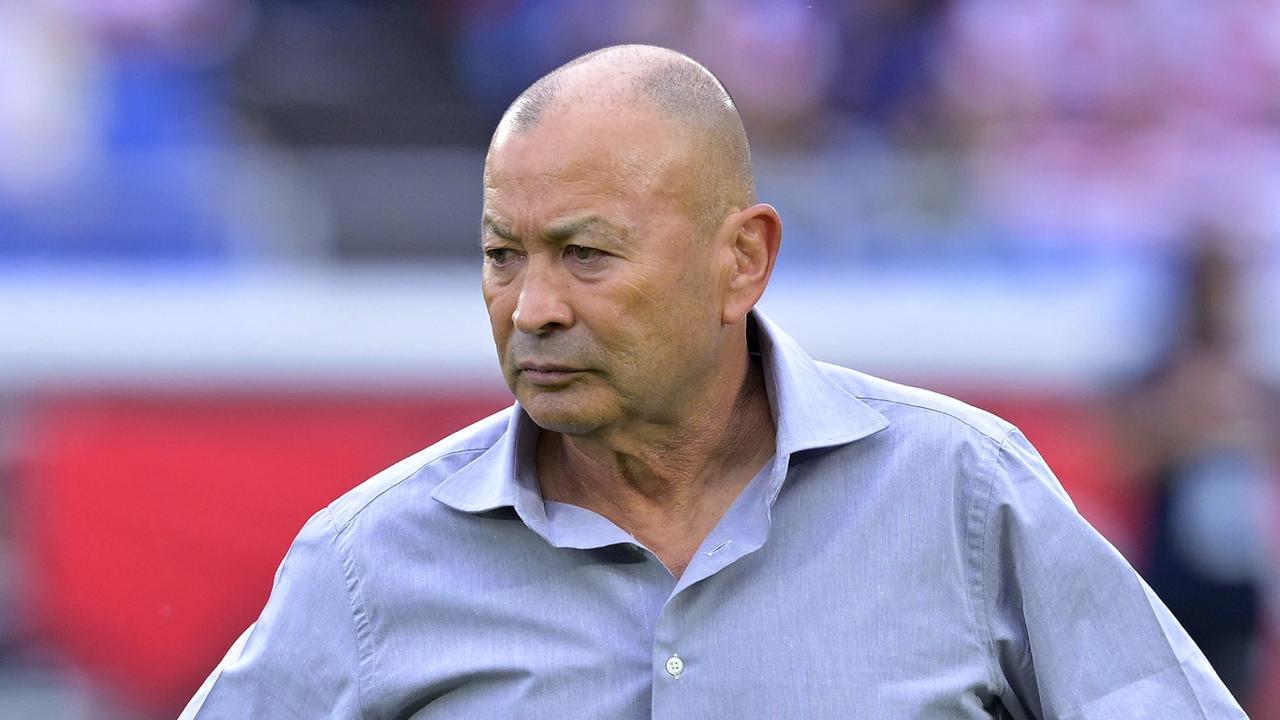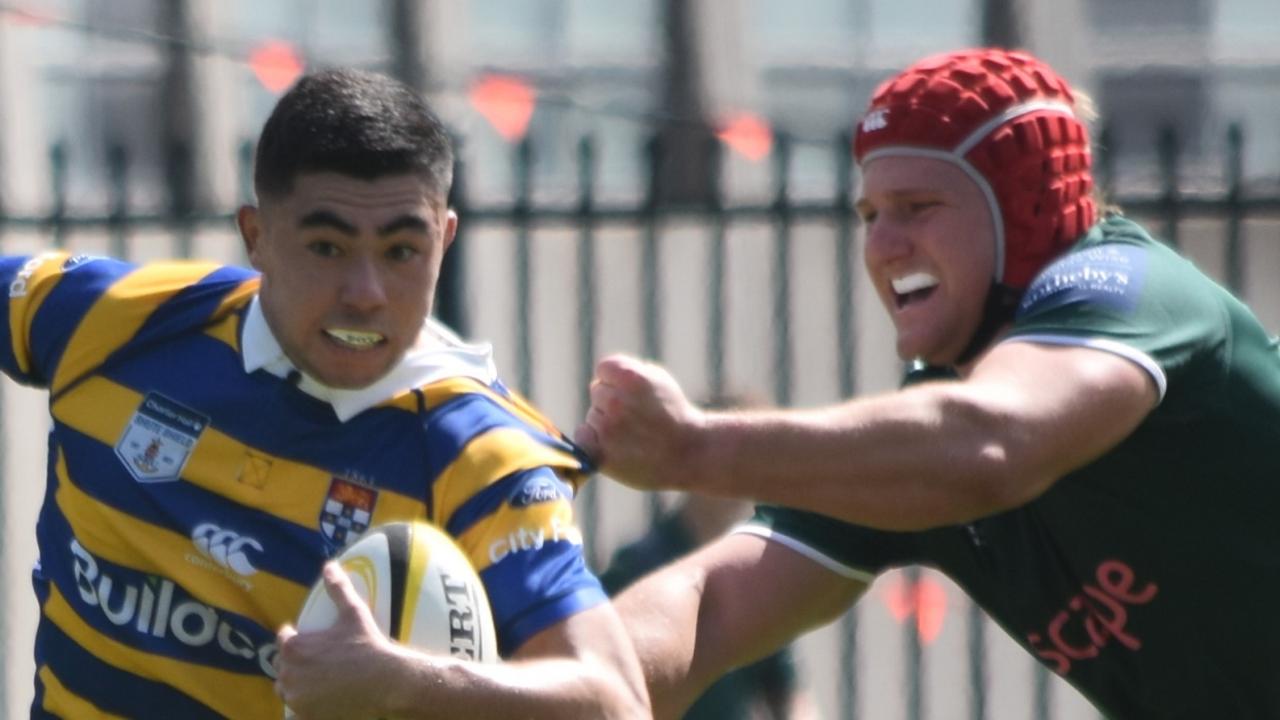
These two outstanding symbols of patriotism and national independence came to a historic agreement: Britain and France should be united into a single country called the “Franco-British Union”.
A war had to be won.
Australian rugby faces a war of a different kind; but it would appear a similar meeting between World Rugby chairman Bill Beaumont and the president of the French Rugby Federation, Bernard Laporte, has recently taken place as the European bloc prepares for battle in the forthcoming World Rugby Council elections on May 10.
Their opponent is the cheeky young Argentinian, Agustin Pichot.
Pichot has been a fly in the ointment as the old dog Beaumont’s vice-chairman in recent years. He is campaigning on a platform of “democratic governance”.
He recently pushed the idea of a nations championship (an international tournament to determine world champions every year) and was shot down by Beaumont, Laporte and the rest of the home nations’ blazer brigade.
Pichot has said of the Beaumont administration: “At the moment some decisions being made look like an old boys’ club.”
That sounds familiar, but it’s accurate.
The brash young Pichot, who is actually 45, was an outstanding international scrum-half. It is a monumental task to overturn the current “Franco-British Union” of Beaumont and Laporte. Remember, there has never been a chairman of World Rugby from outside the Six Nations.
Bernard Laporte was a serious player on the international stage. He became a very successful international coach. Politically, he held the position of secretary of state for sport in France when Nicolas Sarkozy was president.
Now, as president of the French Rugby Federation, Laporte is responsible for delivering the 2023 Rugby World Cup. There is no doubt his ambition is to run the game from the chairman’s position.
Pichot, of course, would be inspired by his famous countryman, Che Guevara, the Argentine Marxist revolutionary, physician, author, guerilla leader, diplomat, and military historian. However, history tells us that it all ended badly for Guevara.
Pichot will be hoping for a different fate, but his chances of beating Laporte and Beaumont at this time are slim.
It hasn’t helped Pichot’s chances that he has spoken publicly about a potential SANZAAR domino effect if Rugby Australia files for bankruptcy — meaning that if Australian rugby fails it will trigger a financial meltdown in New Zealand, Argentina and South Africa.
Those alarmist comments may well undermine his support from the SANZAAR voting bloc.
How does this affect us?
Well, Rugby Australia is now the equivalent of a banana republic. We are broke and we are asking World Rugby for a bailout. We were broke before any coronavirus.
With Agustin Pichot as World Rugby chairman we would probably get a good bailout package. After all, Pichot is part of SANZAAR and he would want to support his southern hemisphere mates. Unfortunately, the SANZAAR bloc that votes represents only 20 of the 50 votes in World Rugby.
Sadly, we are bankrupt financially, some would say morally, and certainly administratively.
Yet, even if Beaumont and Laporte continue to control World Rugby, there may be an appetite to support Rugby Australia with a bailout. After all, the CEO of World Rugby, Brett Gosper, is an Australian, so hopefully we would have a friendly face in the negotiations.
Which prompts the question, what sort of bailout could World Rugby offer Rugby Australia?
The 2019 World Cup put about $400m into the coffers of World Rugby. Some of that money is available to bail out bankrupt governing bodies like Rugby Australia.
The governing body has announced a total of $160m in low interest loans for struggling unions who have their house in order, but our game is drowning now.
With Pichot’s plans to hold a nations championship in tatters, Bernard Laporte has tactically launched his proposal for a club world cup, just prior to the World Rugby elections. Included in the proposed 20-team competition are teams from both Japan and the US.
The gesture is clearly a vote winner, and is an indication of the political acumen of Laporte.
The rest of the teams would come from the English Premiership (four), French Top League (four), Pro14 (four) and Super Rugby (six).
The six-week competition would replace the European Champions Cup, the old Heineken Cup.
It is a great concept to have world club champions decided every year and it would not dilute the significance of the Rugby World Cup that is held every four years. But the concept is not new.
In 1986, Toulouse hosted a club world cup featuring the national champions of New Zealand (Ponsonby), Australia (Western Districts), Argentina (CA Banco de la Nacion), France (Stade Toulouse), Italy (L’Aquila) and others.
So what should Australian rugby offer if World Rugby agrees to a bailout deal? It won’t be a blank cheque.
First, the game must be sustainable and the bloated administration, coaching staff and playing rosters must be reduced.
Why do we need 150 administrators in Rugby Australia for a game that has about 50,000 players? There are almost 190 professional players in four Super Rugby franchises. That’s almost 50 contracted players in each franchise. The last time I checked, the match day squad was only 23!
Get the drift? The playing squads are as bloated as the administration offices.
Second, rather than centrally contracting players, as I have said before, Rugby Australia should let players play their club rugby anywhere in the world.
We cannot be paying Michael Hooper and others $1.2m to play 10 games a season for the Wallabies. Hooper and other world-class players should be allowed to go to the big European and Japanese clubs, just as the South African players do, on the condition they be released to play for their country in line with regulation nine of the World Rugby protocols. We need to scrap the Giteau Law, and pick our players from anywhere in the world.
Thirdly, if we cannot play all our Super Rugby games or Test matches this year, we can always expand the number of matches played next year and in 2022.
The broadcasters want live sport content. If we can’t deliver it right now, we will be able to deliver the content in the next couple of seasons.
Our only problem is that the most obvious partner is Fox Sports and they won’t deal with Raelene Castle.
Finally, and most importantly, we need to invest in the next generation of players. That doesn’t mean throwing money at schoolboys. It means building a rugby academy and developing the next generation of Wallabies.
The best academy model in the world is FC Barcelona. They have won a staggering 26 La Liga titles, five Champions Leagues, three Club World Cups and 30 Copa Del Reys.
They know a bit about winning.
In 2011, Barcelona spent $12m on building a facility that could house up to 80 athletes from around the country. These footballers are not paid; they are on scholarships and attend local schools during the day and train every evening. They are joined by players who live locally and who travel to train with the scholars every evening.
The academy was launched in 1980 and it was transformed by Johan Cruyff, the former great Dutch international player and hugely successful coach of the 1990s.
Cruyff insisted his teams play “total football” with all players able to execute skills at speed and under pressure. At the Barcelona Academy, all players are coached to play a style of football that is easy on the eye and very successful.
The model is so successful, it has been copied by football clubs all over the world.
It costs $4m a year to run and the Barcelona team is mostly made up of their academy graduates.
Rugby Australia currently spends $20m on its high-performance program that is clearly not providing any high performance.
Investing in an academy like Barcelona would be a better way to develop talent. It is the sort of project a philanthropist like Andrew Forrest may want to be a part of.
While Rugby Australia continues to stumble around in a flap about the state of the game and its finances, it is great to see the South Africans seem to have a handle on things.
In South Africa, the CEO, Jurie Roux, has outlined a detailed plan that includes: a domestic tournament including their Super Rugby teams (starting in June), delaying the Rugby Championship Tests until August and September, and rescheduling all other Tests until October.
South Africa appear to have great clarity and purpose while we are struggling to articulate any sort of plan. Our leaders, clearly, are not fit for purpose. Paul McLean and Raelene Castle have to take responsibility for the mess we are in. The financial tsunami was heading our way well before the coronavirus.
Failing to secure a broadcast deal has bankrupted our game, and it is time for heads to roll. For Australian rugby to stand united behind a leader, the leader must first be worthy of the position.
Peter V’landys is demonstrating great leadership in horse racing and the NRL. It is time our game found its own Peter V’landys.
The French have Bernard Laporte. The Argentines have Agustin Pichot.
Australia?





On June 16, 1940, with Nazi Germany on the brink of crushing France, the then British prime minister, Winston Churchill, and the French undersecretary of defence, Charles de Gaulle, met for lunch at the Carlton Club in London.